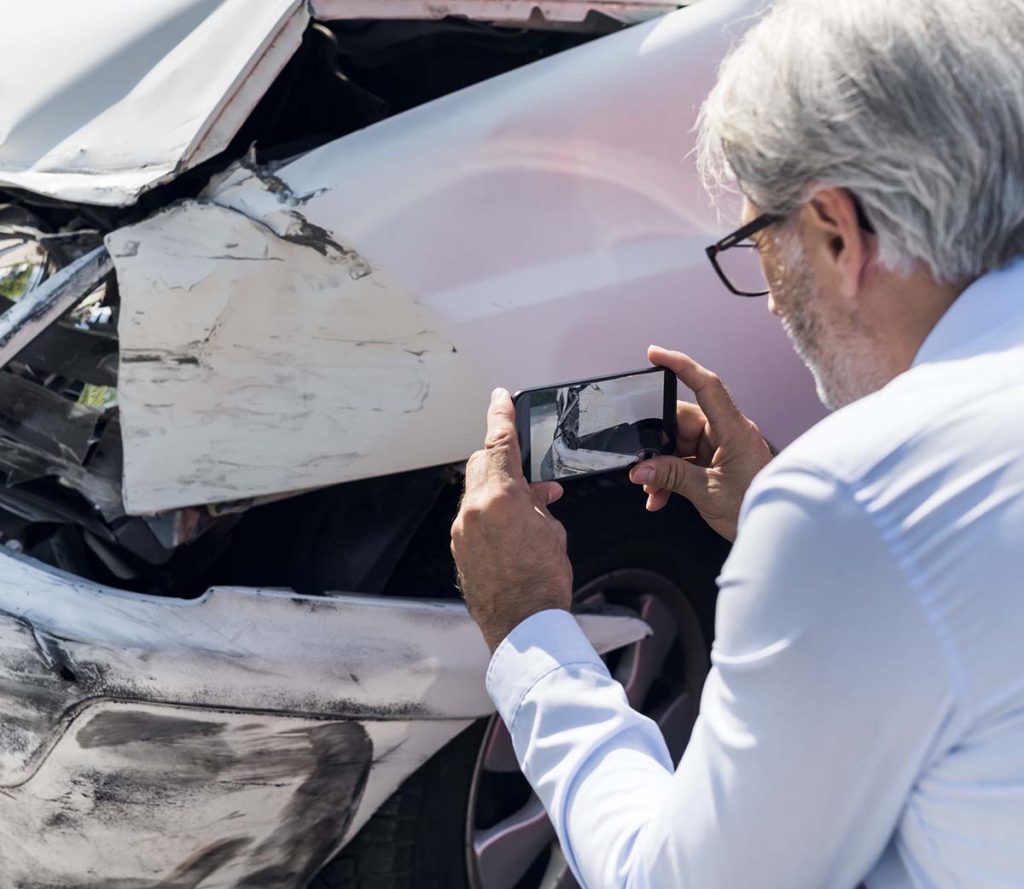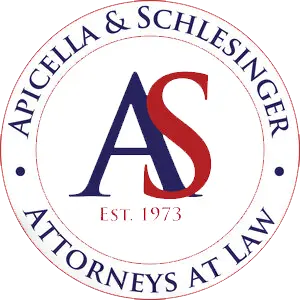If you’ve been involved in an auto accident, gathering the proper evidence is crucial to protect your rights and seek compensation for your losses.
Evidence is essential to building a strong personal injury claim against a negligent driver. However, it’s important to note that the evidence you can collect depends largely on your physical and emotional condition at the accident scene. Therefore, before attempting to gather evidence, ensure the safety of all parties involved.

How to Collect Car Accident Evidence
Auto accidents can be traumatizing experiences that leave victims dealing with physical injuries and navigating the complexities of insurance claims and potential legal proceedings. Here are some essential steps you should take to gather evidence after an auto accident.
- Ensure safety first – Before attempting to gather evidence, ensure the safety of all parties involved. If possible, move to a safe location, call 911 to report the accident, and request medical assistance for injured individuals. Your health and the well-being of others should be your top priority.
- Contact the police – In many jurisdictions, it’s essential to contact the police and have an accident report filed, especially if there are injuries or significant property damage. A police report can be a vital piece of evidence in any subsequent legal proceedings.
While waiting for the police to arrive, start documenting the scene if you can physically do so.
- Accident Scene Documentation:
- Take pictures and videos of the accident scene from various angles. Capture vehicle positions, damage, road conditions, and any visible injuries.
- Document any skid marks, debris on the road, or road signs that could be relevant to the accident’s cause.
- Contact Information:
- Exchange contact information with the other driver(s), including names, phone numbers, addresses, driver’s license numbers, insurance company names, and policy numbers.
- Witness Statements:
- Collect statements from any witnesses to the accident. This can help corroborate your version of events.
- Medical Records:
- Keep records of all medical treatment related to your injuries. This includes hospital records, doctor’s notes, prescriptions, and bills.
- Injury Documentation:
- Photograph your injuries, even minor ones, immediately after the accident and throughout your recovery. These photos can help demonstrate the severity of your injuries.
- Vehicle Documentation:
- Maintain records related to your vehicle, such as repair estimates, receipts, and invoices. Preserve any damaged parts or components as evidence.
- Dashcam or Surveillance Footage:
- If your vehicle has a dashcam, it may have recorded the accident. Additionally, check if nearby surveillance cameras may have captured the accident.
- Journal and Notes:
- Keep a detailed journal of your experiences post-accident, including pain levels, emotional distress, and any disruptions to your daily life.
- Weather and Road Conditions:
- Note the weather conditions at the time of the accident and any issues with road conditions (e.g., ice, potholes).
- Witness Contacts:
- Obtain contact information from witnesses who may not have provided statements at the scene. Your attorney may need to contact them later.
- Insurance Correspondence:
- Keep records of all communications with insurance companies, including emails, letters, and phone call logs.
This is an extensive list of all the information you can collect at the accident scene. It will likely be impossible to gather all of this evidence. But writing down and photographing as much as possible will significantly increase your chances of getting maximum compensation for your injuries and damages.
Contact a Car Accident Attorney
A car accident lawyer can be invaluable when gathering evidence for your case. Their experience and expertise can significantly enhance your ability to build a strong claim.
At Apicella & Schlesinger Attorneys at Law, we can guide you on what types of evidence are essential and admissible in court. We often work with a team of investigators who can quickly and thoroughly assess the accident scene. Contact us today for a free case evaluation.
